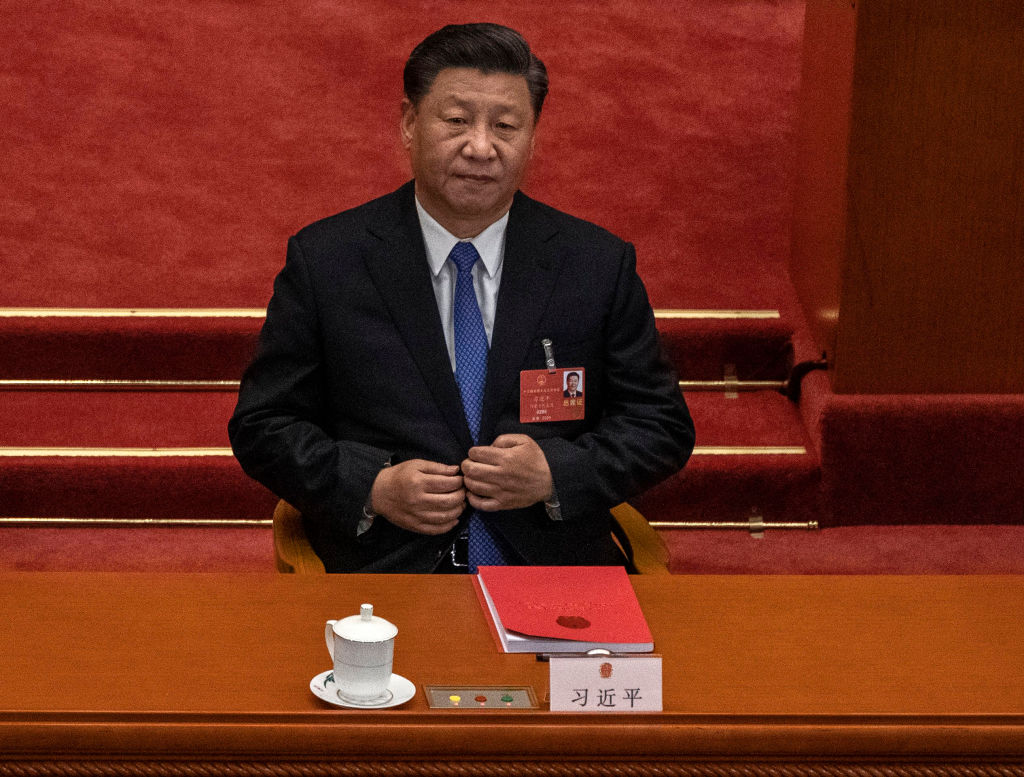'Reflection' leads Beijing to soften rhetoric aimed at U.S., others


A free daily email with the biggest news stories of the day – and the best features from TheWeek.com
You are now subscribed
Your newsletter sign-up was successful
As the relationship between the United States and China deteriorates, Beijing is looking to tone down its rhetoric and salvage something, The New York Times reports.
Recently, top Chinese diplomats, academics, and state-run media outlets have — publicly, at least — taken a more moderate stance and backed efforts to find a way to co-exist peacefully with the United States. "There's a reflection that we should not let nationalism or hotheadedness somehow kidnap our foreign policy," Xu Quinduo, a commentator for state-run broadcaster China Radio International, told the Times. "Tough rhetoric should not replace rational diplomacy."
There have been both fewer calls for China to challenge the U.S. military and direct attacks on President Trump, and the strategy seems to be backed up by actions, as well. Earlier this week, for instance, The South China Morning Post reported that Chinese troops were given orders not to escalate the situation in the disputed South China Sea, where both the U.S. and Chinese have upped their military operations. "China won't fire the first shot," Jin Canrong, an international studies professor at Renmin University, told the Times.
The Week
Escape your echo chamber. Get the facts behind the news, plus analysis from multiple perspectives.

Sign up for The Week's Free Newsletters
From our morning news briefing to a weekly Good News Newsletter, get the best of The Week delivered directly to your inbox.
From our morning news briefing to a weekly Good News Newsletter, get the best of The Week delivered directly to your inbox.
It's not all about the U.S., however. China has also strained its relations with neighboring India, the United Kingdom, Canada, and Australia of late. "Beijing's rhetoric appears aimed at defusing the global backlash its brash diplomacy and harsh policies have provoked," said Jessica Chen Weiss, an associate professor of government at Cornell University. Read more at The New York Times.
A free daily email with the biggest news stories of the day – and the best features from TheWeek.com
Tim is a staff writer at The Week and has contributed to Bedford and Bowery and The New York Transatlantic. He is a graduate of Occidental College and NYU's journalism school. Tim enjoys writing about baseball, Europe, and extinct megafauna. He lives in New York City.
-
 Local elections 2026: where are they and who is expected to win?
Local elections 2026: where are they and who is expected to win?The Explainer Labour is braced for heavy losses and U-turn on postponing some council elections hasn’t helped the party’s prospects
-
 6 of the world’s most accessible destinations
6 of the world’s most accessible destinationsThe Week Recommends Experience all of Berlin, Singapore and Sydney
-
 How the FCC’s ‘equal time’ rule works
How the FCC’s ‘equal time’ rule worksIn the Spotlight The law is at the heart of the Colbert-CBS conflict
-
 Nobody seems surprised Wagner's Prigozhin died under suspicious circumstances
Nobody seems surprised Wagner's Prigozhin died under suspicious circumstancesSpeed Read
-
 Western mountain climbers allegedly left Pakistani porter to die on K2
Western mountain climbers allegedly left Pakistani porter to die on K2Speed Read
-
 'Circular saw blades' divide controversial Rio Grande buoys installed by Texas governor
'Circular saw blades' divide controversial Rio Grande buoys installed by Texas governorSpeed Read
-
 Los Angeles city workers stage 1-day walkout over labor conditions
Los Angeles city workers stage 1-day walkout over labor conditionsSpeed Read
-
 Mega Millions jackpot climbs to an estimated $1.55 billion
Mega Millions jackpot climbs to an estimated $1.55 billionSpeed Read
-
 Bangladesh dealing with worst dengue fever outbreak on record
Bangladesh dealing with worst dengue fever outbreak on recordSpeed Read
-
 Glacial outburst flooding in Juneau destroys homes
Glacial outburst flooding in Juneau destroys homesSpeed Read
-
 Scotland seeking 'monster hunters' to search for fabled Loch Ness creature
Scotland seeking 'monster hunters' to search for fabled Loch Ness creatureSpeed Read
